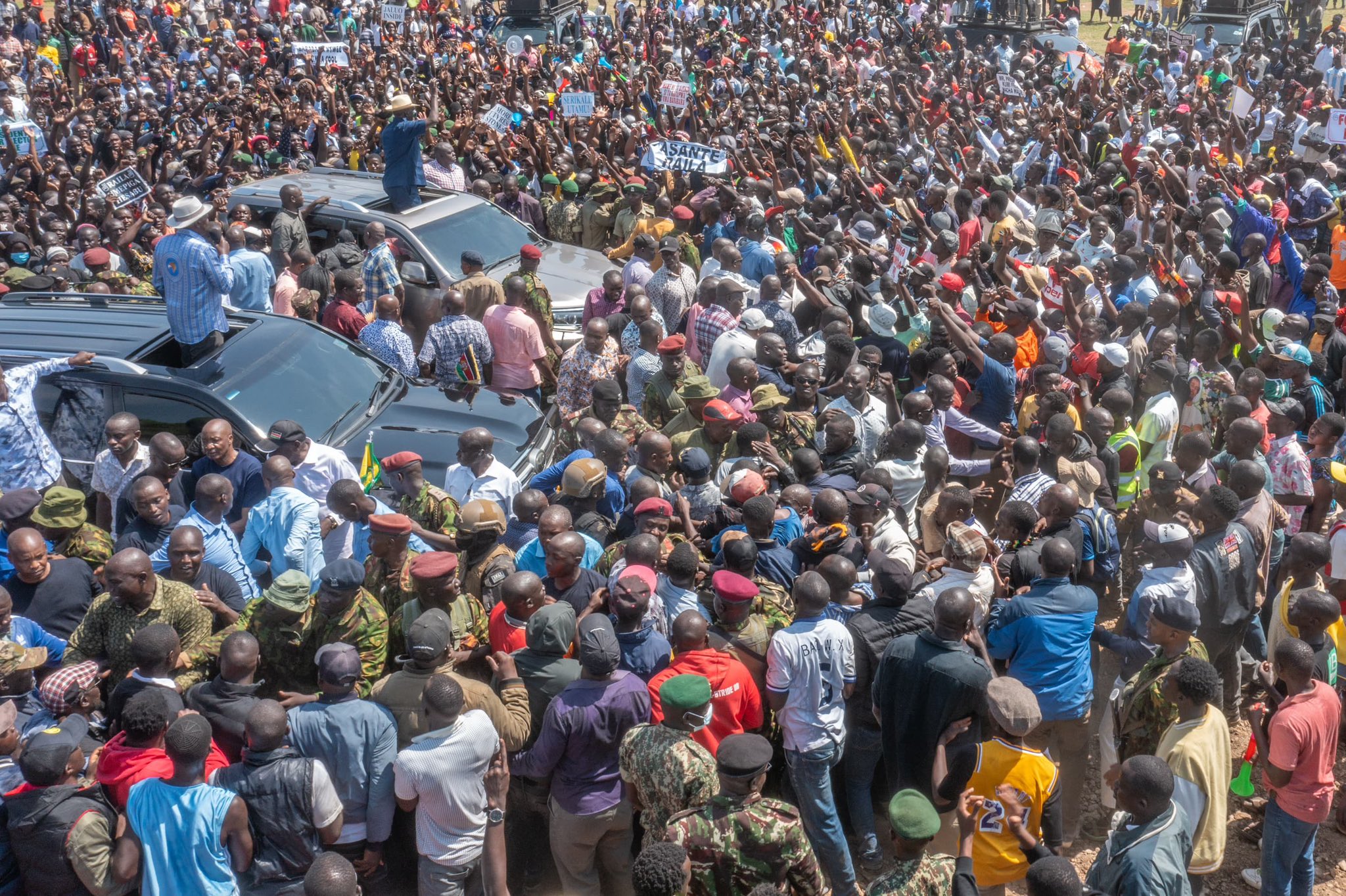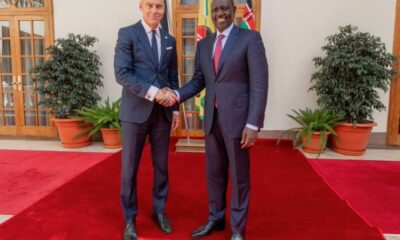Politics
Raila Odinga Donates Prime Land for Government Housing Initiative in Political Unity Display
Ruto revealed plans for 15,000 affordable housing units across Kisumu County, with 2,400 already under construction.

KISUMU, May 29 – In a remarkable show of political cooperation, former Prime Minister Raila Odinga has donated five acres of prime land in Kisumu to support President William Ruto’s flagship affordable housing program, marking a significant moment of bipartisan collaboration in Kenya’s often polarized political landscape.
The land donation, announced during a public rally in Kisumu on Thursday, represents more than just a real estate transaction—it signals a potential shift toward unity-focused governance that transcends traditional party lines.
Speaking to enthusiastic crowds, Odinga framed the donation within Kenya’s broader developmental challenges, emphasizing five critical areas: shelter, food security, housing, healthcare, and education. “We cannot say we are waiting for another government.
This current government must work for the people,” he declared, underscoring his commitment to immediate action over political positioning.
The donated land will anchor a comprehensive development project that extends beyond housing. Plans include constructing a school and hospital on the site, creating a multi-purpose community hub designed to address multiple social needs simultaneously.
President Ruto, accepting the donation with visible appreciation, announced a substantial Sh3.2 billion government investment in the project.
The initiative will deliver 750 housing units specifically targeting low-income earners, including vegetable vendors and motorcycle taxi operators—constituencies often overlooked in major development projects.
“This is Raila’s land, but with humility, I must thank him,” Ruto acknowledged, publicly recognizing his former political rival’s contribution.
The President emphasized that the project represents broader principles of equitable development, stating that “development in Kenya must reach every corner of the country.”
The Kisumu project forms part of an ambitious county-wide housing initiative.
Ruto revealed plans for 15,000 affordable housing units across Kisumu County, with 2,400 already under construction.
The strategy aims to transition residents from perpetual tenancy to homeownership through accessible mortgage arrangements.
“We want to stop people from endlessly paying rent. Instead, we want them to pay mortgages so they can become homeowners rather than tenants,” the President explained, articulating a vision of economic empowerment through property ownership.
This collaboration between Odinga and Ruto carries significant political weight, particularly given their historical rivalry and the ongoing tensions in Kenyan politics.
The public display of cooperation in Kisumu—traditionally considered Odinga’s political stronghold—sends a powerful message about the possibility of transcending partisan divisions for national development.
The 18-month project timeline places its completion well within the current political cycle, potentially serving as a tangible example of what cross-party cooperation can achieve when leaders prioritize citizen welfare over political competition.
For Kisumu residents, particularly those in the informal economy, the project represents unprecedented access to homeownership opportunities.
The focus on low-income earners addresses long-standing housing inequities while potentially stimulating local economic activity through construction jobs and related services.
The integrated approach—combining housing, education, and healthcare infrastructure—suggests a holistic development model that could serve as a template for similar initiatives across Kenya.
As the project moves forward, it will test whether this moment of political unity can translate into sustained collaborative governance, potentially reshaping how Kenya approaches major development challenges in an era of increasing political polarization.
Kenya Insights allows guest blogging, if you want to be published on Kenya’s most authoritative and accurate blog, have an expose, news TIPS, story angles, human interest stories, drop us an email on [email protected] or via Telegram
-

 Grapevine2 weeks ago
Grapevine2 weeks agoA UN Director Based in Nairobi Was Deep in an Intimate Friendship With Epstein — He Even Sent Her a Sex Toy
-

 Development3 days ago
Development3 days agoKenya Strips Dutch Climate Body of Diplomatic Immunity Amid Donor Fraud Scandal and Allegations of Executive Capture
-

 Investigations1 week ago
Investigations1 week agoHow Mexico Drug Lord’s Girlfriend Gave Him Away
-

 Business2 weeks ago
Business2 weeks agoSafaricom Faces Avalanche of Lawsuits Over Data Privacy as Acquitted Student Demands Sh200mn Compensation in 48 Hours
-

 Investigations1 week ago
Investigations1 week agoHow Close Ruto Allies Make Billions From Affordable Housing Deals
-

 Entertainment2 weeks ago
Entertainment2 weeks agoKRA Comes for Kenyan Prince After He Casually Counted Millions on Camera
-

 Business1 week ago
Business1 week agoAmerican Investor Claims He Was Scammed Sh225 Million in 88 Nairobi Real Estate Deal
-

 Business2 weeks ago
Business2 weeks agoSafaricom Under Storm As Acquitted Student Vows Massive Lawsuit After Teleco Admits Handing DCI His Private Data Without Court Order



















